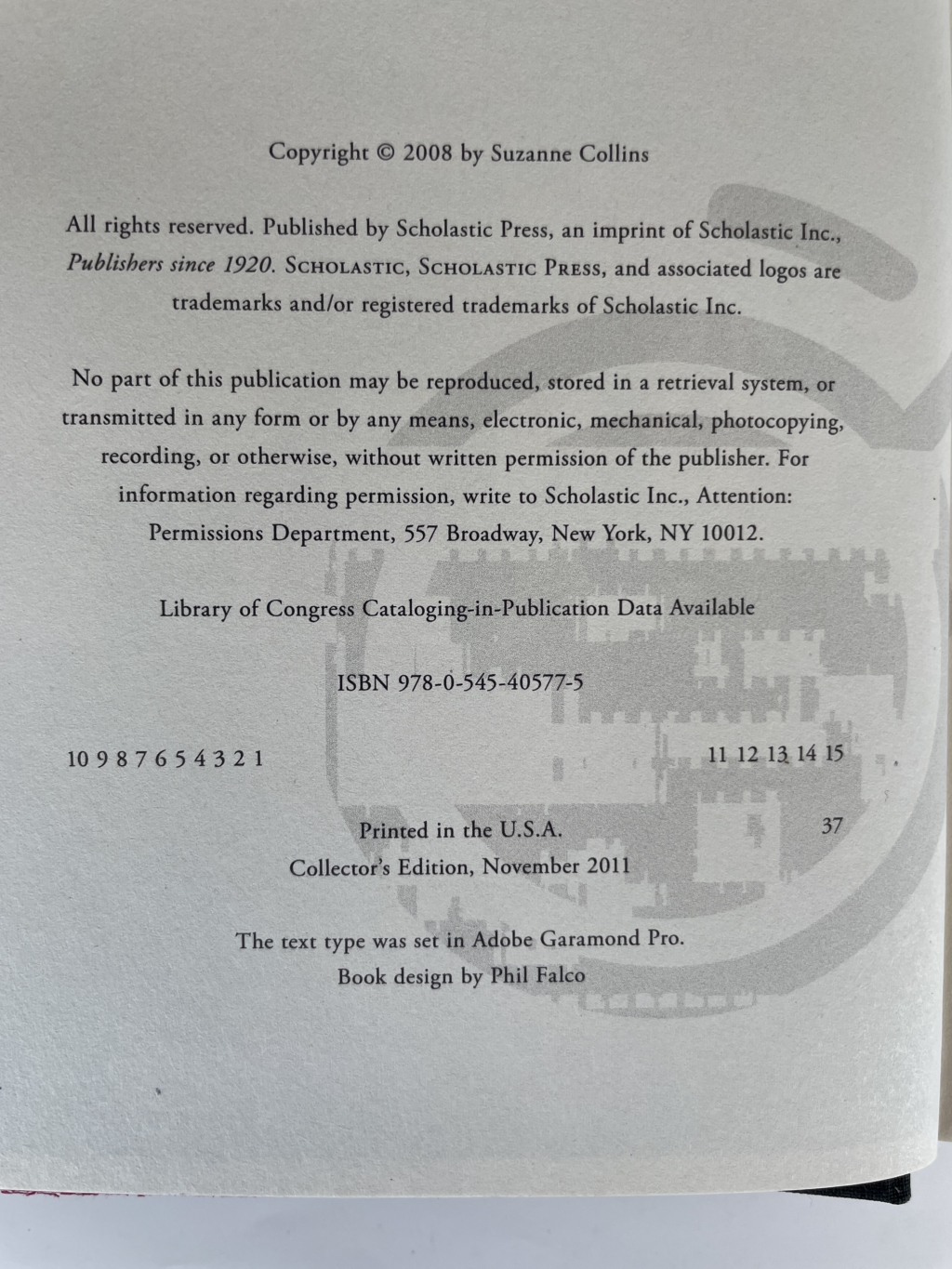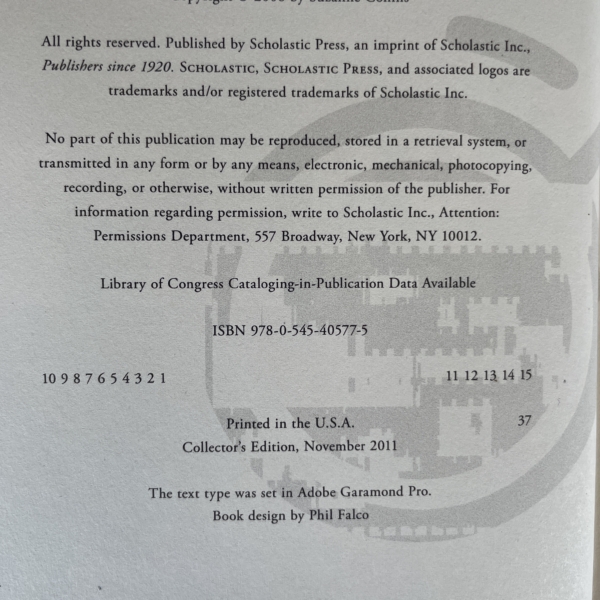Suzanne Collins – The Hunger Games – Limited Slipcased First UK Edition 2008
£185.00
A first edition, first printing of ‘The Hunger Games’ by Suzanne Collins published by Scholastic, London in 2008. A near fine book without inscriptions in a very good slipcase with wear to the edges and to the panels.
“The Hunger Games” trilogy has significantly impacted culture by addressing themes of power, inequality, and resistance. It has sparked discussions on authoritarianism, social justice, and media manipulation. The series introduced a strong female protagonist, Katniss Everdeen, promoting gender equality and inspiring countless readers. “The Hunger Games” contributed to the popularity and recognition of Young Adult literature as a genre. The film adaptations and related merchandise expanded its cultural influence, and it helped propel the dystopian fiction genre to the forefront of popular culture, reflecting contemporary societal concerns and fears about the future. Overall, Collins’ work has left a lasting imprint on cultural discourse.
(We don't keep all of our stock in the shop, so send us an email if you're planning a trip to see a particular author or book.)
- Description
Description
A first edition, first printing of ‘The Hunger Games’ by Suzanne Collins published by Scholastic, London in 2008. A near fine book without inscriptions in a very good slipcase with wear to the edges and to the panels.
“The Hunger Games” trilogy has significantly impacted culture by addressing themes of power, inequality, and resistance. It has sparked discussions on authoritarianism, social justice, and media manipulation. The series introduced a strong female protagonist, Katniss Everdeen, promoting gender equality and inspiring countless readers. “The Hunger Games” contributed to the popularity and recognition of Young Adult literature as a genre. The film adaptations and related merchandise expanded its cultural influence, and it helped propel the dystopian fiction genre to the forefront of popular culture, reflecting contemporary societal concerns and fears about the future. Overall, Collins’ work has left a lasting imprint on cultural discourse.








